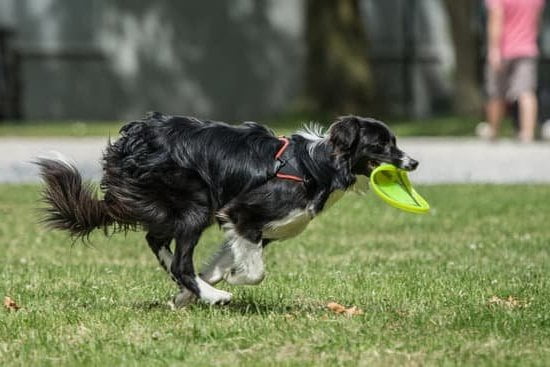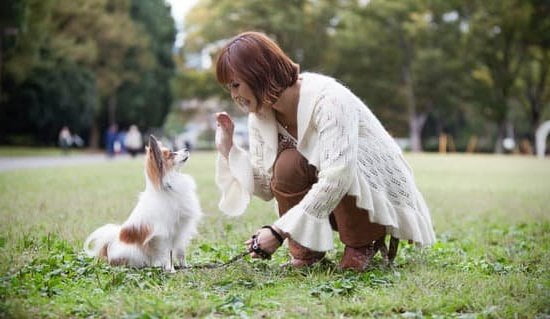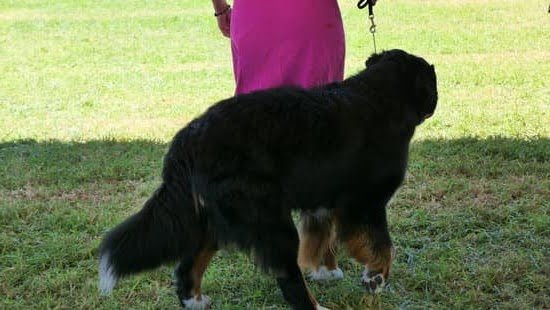Can a dog that bites be trained to overcome its aggressive behavior? Understanding the behavior of a dog that bites is crucial in addressing and correcting this issue. While aggression in dogs can be concerning and challenging, with appropriate training and intervention, it is possible to rehabilitate a biting dog.
Various factors can contribute to aggressive behavior in dogs, such as fear, anxiety, territoriality, or past experiences. It is essential to identify the underlying cause of the aggression before implementing a training plan. Seeking professional help from a qualified trainer or behaviorist is highly recommended when dealing with a dog that bites, as they can provide expert guidance and develop a tailored training program.
Positive reinforcement training has been found to be effective in rehabilitating biting dogs. By rewarding desired behaviors and ignoring or redirecting unwanted behaviors, dogs can learn alternative ways to respond to triggers that previously caused them to lash out. Implementing behavior modification techniques, along with consistent training and patience, can help reshape the aggressive tendencies of a biting dog.
Factors That Contribute to Aggressive Behavior in Dogs
Aggressive behavior in dogs can be a troubling issue for many pet owners. Understanding the factors that contribute to this behavior is crucial in addressing and effectively managing it. There are various reasons why a dog may exhibit aggression, including genetic predisposition, lack of socialization, fear, pain or discomfort, and territorial behavior. It is important to identify the root cause of the aggression in order to develop an appropriate training plan.
- Genetic predisposition: Some dog breeds are known to have a higher likelihood of displaying aggressive behavior due to their breeding history.
- Lack of socialization: Dogs that have not been properly socialized with other animals and people as puppies may be more prone to showing aggression out of fear or anxiety.
- Fear or anxiety: Dogs that feel threatened or are put in stressful situations may resort to aggression as a way to protect themselves.
- Pain or discomfort: Dogs that are experiencing pain or discomfort due to an injury or underlying health condition may become aggressive as a defensive response.
- Territorial behavior: Dogs naturally have a sense of territory and may display aggression towards perceived intruders or threats to their space.
Seeking professional help from a qualified dog trainer or behaviorist is essential when dealing with a dog that exhibits aggressive behavior. These professionals have the knowledge and expertise to assess the situation accurately and create a customized training plan based on the specific needs of the dog. They can provide guidance on how to safely handle and manage the dog while implementing behavior modification techniques effectively.
The Importance of Seeking Professional Help for a Dog That Bites
When dealing with a dog that exhibits biting behavior, it is crucial to understand the underlying reasons behind this aggression. Factors such as fear, territorial instincts, past traumas, lack of socialization, or medical issues can contribute to a dog’s tendency to bite.
While some cases of biting may be resolved through training and behavior modification techniques, others may require the expertise of a professional trainer or behaviorist. Seeking professional help can provide valuable insights into the specific triggers and motivations behind the biting behavior, as well as develop a tailored plan to address and correct it.
Here are some reasons why seeking professional help for a dog that bites is essential:
- Professional trainers and behaviorists have the knowledge and experience to assess the root cause of your dog’s aggression.
- They can create a customized training plan that focuses on positive reinforcement techniques to modify your dog’s behavior.
- Working with professionals can ensure that the training process is safe and effective for both you and your dog.
Moreover, professional help can a dog that bites be trained in a way that promotes long-term success and prevents future incidents of aggression. This includes teaching alternative behaviors, addressing fear or anxiety triggers, and building trust between you and your pet.
Remember that every dog is unique, so what works for one may not work for another. By enlisting the help of experts in canine behavior, you can increase the chances of successfully rehabilitating your biting dog and providing them with a happier, safer life.
Positive Reinforcement Training
It is a common misconception that a dog that bites cannot be trained, but with the right approach and techniques, aggressive behavior in dogs can often be modified. Positive reinforcement training is a key method in rehabilitating a biting dog and shaping their behavior towards a more acceptable and non-aggressive demeanor. This type of training focuses on rewarding desired behaviors to encourage their repetition, rather than punishing or scolding undesirable actions.
Understanding Positive Reinforcement Training
Positive reinforcement training involves rewarding your dog with treats, praise, or toys when they exhibit good behavior. When a biting dog displays non-aggressive responses or follows commands correctly, they should be immediately rewarded to reinforce that behavior positively. This form of training helps build trust between the dog and owner, creating a strong bond based on mutual respect and understanding.
Consistency and Patience Are Key
Training a biting dog using positive reinforcement requires consistency and patience. It is essential to establish clear boundaries and rules for your dog to follow consistently. Repeated practice of commands and exercises will help reinforce positive behaviors over time. While results may not be immediate, with dedication and perseverance, progress <can a dog that bites be trained> effectively using this method.
Implementing Behavior Modification Techniques for Aggressive Dogs
When dealing with a dog that bites, it is essential to understand that aggression in dogs can stem from various factors such as fear, territorial behavior, possessiveness, or even past traumatic experiences. It is crucial to address the root cause of the aggression rather than just focusing on correcting the biting behavior itself. By identifying the triggers and underlying reasons for the aggression, appropriate behavior modification techniques can be implemented to help the dog overcome its aggressive tendencies.
One of the most effective behavior modification techniques for aggressive dogs is desensitization and counterconditioning. This technique involves exposing the dog to stimuli that trigger aggression in a controlled and gradual manner while associating those stimuli with positive experiences like treats or play.
Through consistent practice and patience, the dog can learn new, non-aggressive responses to those triggers. Additionally, obedience training plays a significant role in modifying aggressive behaviors by teaching the dog impulse control and promoting better communication between the owner and pet.
Consistency is key when implementing behavior modification techniques for aggressive dogs. It is essential to establish clear boundaries, rules, and routines for the dog to follow consistently. Inconsistencies in training methods or reactions can confuse the dog and hinder progress towards reducing aggression. Working with a professional dog trainer or behaviorist experienced in handling aggressive behaviors can also provide valuable guidance and support in developing an effective behavior modification plan tailored to your dog’s specific needs.
| Behavior Modification Techniques | Description |
|---|---|
| Desensitization and Counterconditioning | Involves exposing the dog to triggers of aggression gradually while associating them with positive experiences. |
| Obedience Training | Teaches impulse control and improves communication between owner and pet. |
| Consistency | Establishes clear boundaries, rules, and routines for effective training. |
The Role of Socialization in Training Aggressive Dogs
Socialization plays a crucial role in the training and rehabilitation of aggressive dogs. It involves exposing the dog to various people, animals, environments, and situations in a controlled and positive manner. By socializing a biting dog, it can help reduce fear, build confidence, and teach them appropriate behavior around others. However, it is important to proceed with caution and consult with a professional trainer or behaviorist when implementing socialization techniques for an aggressive dog.
One key aspect of socialization for aggressive dogs is gradually exposing them to different stimuli at their own pace. This gradual exposure helps prevent overwhelming the dog, which can trigger aggression. Positive reinforcement techniques should be used during these socialization sessions to reward calm and non-aggressive behavior. Over time, the dog will learn to associate new experiences with positive outcomes, helping them feel more comfortable and less threatened in various situations.
In addition to traditional socialization exercises, incorporating specialized training methods tailored to the individual needs of the biting dog is essential. This may include desensitization exercises, counter-conditioning techniques, or specific behavior modification programs designed to address the underlying causes of aggression. With consistency, patience, and professional guidance, even a dog that bites can be trained to exhibit more appropriate and non-aggressive behaviors over time.
Case Studies
Case Study 1: Max’s Journey to Rehabilitation
Max, a German Shepherd mix, was known for his aggressive behavior towards strangers and other dogs. His owners were at a loss on how to handle his biting incidents and feared they would have to give him up. However, with the help of a professional dog trainer specializing in aggression issues, Max began his journey to rehabilitation. Through positive reinforcement training, Max learned alternative behaviors to express his fear and anxiety, ultimately leading to a significant decrease in biting incidents.
Case Study 2: Luna’s Transformation Through Behavior Modification
Luna, a rescued Pit Bull, had a history of biting due to past trauma and lack of socialization. Her new owners were determined to help her overcome her aggressive tendencies and sought the expertise of a certified canine behaviorist.
By implementing behavior modification techniques such as desensitization and counter-conditioning, Luna gradually learned to trust people and feel less threatened in certain situations that triggered her aggression. Over time, Luna’s biting episodes decreased substantially as she gained confidence and security in her environment.
Case Study 3: Cooper’s Success With Socialization
Cooper, a Cocker Spaniel mix, exhibited territorial aggression towards visitors entering his home. Despite his alarming behavior, Cooper’s owners were committed to helping him become more comfortable around unfamiliar guests.
With the guidance of a professional trainer experienced in socialization techniques, Cooper underwent gradual exposure to visitors combined with positive reinforcement whenever he displayed calm behavior. Through consistent socialization efforts and patience from his owners, Cooper learned that strangers were not a threat, resulting in a remarkable improvement in his interactions and ultimately eliminating his biting tendencies.
In each of these case studies, the combination of seeking professional help from experts in dog behavior and utilizing positive reinforcement training methods proved instrumental in successfully rehabilitating aggressive dogs. While it may require dedication, patience, and consistency from both the owners and the dog themselves, it is evident that with the right approach and guidance, even a dog that bites can be trained to exhibit more appropriate behaviors.
Tips for Responsible Dog Ownership and Preventing Biting Incidents
Responsponsible dog ownership is crucial in preventing biting incidents and ensuring the safety of both the dog and those around them. One of the most important aspects of responsible ownership is proper training and socialization from a young age. Dogs that are well-socialized tend to exhibit less aggressive behavior, reducing the risk of biting incidents. Additionally, providing a safe and stimulating environment for your dog can also help prevent behavioral issues that may lead to biting.
Regular exercise and mental stimulation are key components of responsible dog ownership. A well-exercised and mentally stimulated dog is less likely to develop behavioral problems out of boredom or pent-up energy, which could manifest as aggression. By providing adequate physical and mental outlets for your dog, you can help keep their behavior in check and reduce the likelihood of biting incidents.
Furthermore, it is essential to understand your dog’s body language and signals to prevent potential aggressive situations. Recognizing signs of fear, anxiety, or stress in your dog can help you address their needs before they escalate into aggression. Being proactive in addressing any triggers for aggressive behavior in your dog will not only prevent biting incidents but also strengthen the bond between you and your furry companion.
| Tips for Responsible Dog Ownership | Preventing Biting Incidents |
|---|---|
| Proper training and socialization | Recognize signs of fear, anxiety, or stress |
| Regular exercise and mental stimulation | Understand your dog’s body language |
Conclusion
In conclusion, the question “Can a dog that bites be trained?” can be answered with a resounding yes. While aggressive behavior in dogs can be challenging to overcome, it is entirely possible with the right approach, dedication, and professional guidance. Factors such as genetics and past experiences may contribute to a dog’s aggression, but through positive reinforcement training and behavior modification techniques, significant progress can be made in rehabilitating a biting dog.
Seeking professional help is crucial when dealing with a dog that exhibits aggressive tendencies. Trained professionals can assess the root cause of the behavior and create a personalized training plan to address it effectively. Additionally, socialization plays a vital role in training aggressive dogs, helping them learn appropriate ways to interact with other animals and people.
As seen in numerous success stories of biting dogs successfully trained, with patience, consistency, and commitment from both the owner and the dog, remarkable transformations can occur. Responsible dog ownership also plays a key role in preventing biting incidents from happening in the first place. By providing proper training, socialization, exercise, and mental stimulation for your canine companion, you are setting them up for success and creating a harmonious bond based on trust and respect.
Frequently Asked Questions
Can a Dog Be Trained Out of Biting?
Yes, a dog can be trained out of biting through proper training techniques, consistency, and positive reinforcement. It is important to address the underlying reasons for the biting behavior and work on modifying it through training.
Can a Dog Who Has Bitten Be Trusted Again?
A dog who has bitten can potentially be trusted again, but it will depend on various factors such as the severity of the bite, the circumstances surrounding the incident, and steps taken to prevent future bites. Professional help may be needed to rebuild trust.
Can a Dog Be Rehabilitated After Biting?
A dog can be rehabilitated after biting with patience, understanding, and appropriate behavior modification techniques. It is essential to identify triggers for aggression, implement a training plan, and closely monitor progress to ensure successful rehabilitation.

Welcome to the blog! I am a professional dog trainer and have been working with dogs for many years. In this blog, I will be discussing various topics related to dog training, including tips, tricks, and advice. I hope you find this information helpful and informative. Thanks for reading!





